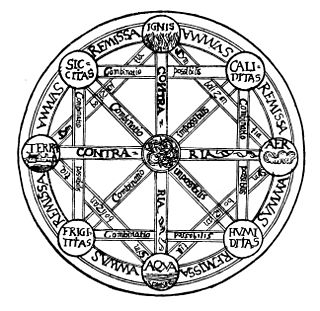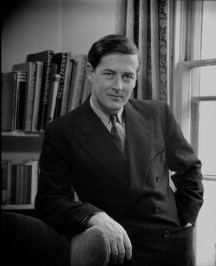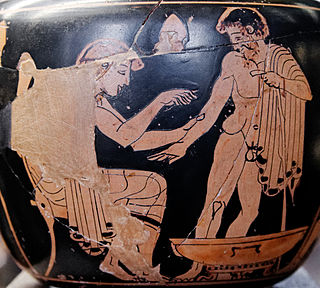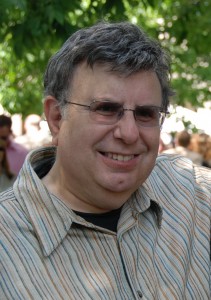Related Research Articles

Aristotle (384–322 BC) was an Ancient Greek philosopher and polymath. His writings cover a broad range of subjects spanning the natural sciences, philosophy, linguistics, economics, politics, psychology, and the arts. As the founder of the Peripatetic school of philosophy in the Lyceum in Athens, he began the wider Aristotelian tradition that followed, which set the groundwork for the development of modern science.

The classical elements typically refer to earth, water, air, fire, and (later) aether which were proposed to explain the nature and complexity of all matter in terms of simpler substances. Ancient cultures in Greece, Tibet, and India had similar lists which sometimes referred, in local languages, to "air" as "wind" and the fifth element as "void".

Flat Earth is an archaic and scientifically disproven conception of the Earth's shape as a plane or disk. Many ancient cultures subscribed to a flat-Earth cosmography. The model has undergone a recent resurgence as a conspiracy theory.
The history of science covers the development of science from ancient times to the present. It encompasses all three major branches of science: natural, social, and formal. Protoscience, early sciences, and natural philosophies such as alchemy and astrology during the Bronze Age, Iron Age, classical antiquity, and the Middle Ages declined during the early modern period after the establishment of formal disciplines of science in the Age of Enlightenment.

Rhetoric is the art of persuasion. It is one of the three ancient arts of discourse (trivium) along with grammar and logic/dialectic. As an academic discipline within the humanities, rhetoric aims to study the techniques that speakers or writers use to inform, persuade, and motivate their audiences. Rhetoric also provides heuristics for understanding, discovering, and developing arguments for particular situations.

Ancient Greek literature is literature written in the Ancient Greek language from the earliest texts until the time of the Byzantine Empire. The earliest surviving works of ancient Greek literature, dating back to the early Archaic period, are the two epic poems the Iliad and the Odyssey, set in an idealized archaic past today identified as having some relation to the Mycenaean era. These two epics, along with the Homeric Hymns and the two poems of Hesiod, the Theogony and Works and Days, constituted the major foundations of the Greek literary tradition that would continue into the Classical, Hellenistic, and Roman periods.
Science in the ancient world encompasses the earliest history of science from the protoscience of prehistory and ancient history through to late antiquity. In ancient times, culture and knowledge were passed on generation to generation by means of oral tradition. The development of writing further enabled the ability to preserve knowledge and culture, allowing communication to travel across generations with greater fidelity. The earliest scientific traditions of the ancient world developed in the Ancient Near East with Ancient Egypt and Babylonia in Mesopotamia. Later traditions of science during classical antiquity were advanced in Ancient Persia, Ancient Greece, Ancient Rome, Ancient India, Ancient China, and ancient Pre-Columbian Mesoamerica. Aside from alchemy and astrology that waned in importance during the Age of Enlightenment, civilizations of the ancient world laid the roots of various modern sciences. These include astronomy, calendrical science, mathematics, horology and timekeeping, cartography, botany and zoology, medicine and pharmacology, hydraulic and structural engineering, metallurgy, archaeology, and many other fields.

Science in classical antiquity encompasses inquiries into the workings of the world or universe aimed at both practical goals as well as more abstract investigations belonging to natural philosophy. Classical antiquity is traditionally defined as the period between the 8th century BC and the 6th century AD. It is typically limited geographically to the Greco-Roman West, Mediterranean basin, and Ancient Near East, thus excluding traditions of science in the ancient world in regions such as China and the Indian subcontinent.

Geoffrey Stephen Kirk, was a British classicist who served as the 35th Regius Professor of Greek at the University of Cambridge. He published widely on pre-Socratic philosophy and the work of the Greek poet Homer, culminating in a six-volume philological commentary on the Iliad published between 1985 and 1993.

Ancient Greek medicine was a compilation of theories and practices that were constantly expanding through new ideologies and trials. The Greek term for medicine was iatrikē. Many components were considered in ancient Greek medicine, intertwining the spiritual with the physical. Specifically, the ancient Greeks believed health was affected by the humors, geographic location, social class, diet, trauma, beliefs, and mindset. Early on the ancient Greeks believed that illnesses were "divine punishments" and that healing was a "gift from the Gods". As trials continued wherein theories were tested against symptoms and results, the pure spiritual beliefs regarding "punishments" and "gifts" were replaced with a foundation based in the physical, i.e., cause and effect.

Nicholas Geoffrey Lemprière Hammond, was a British historian, geographer, classicist and an operative for the British Special Operations Executive (SOE) in occupied Greece during the Second World War.

Simon David Goldhill, FBA is Professor in Greek literature and culture and fellow and Director of Studies in Classics at King's College, Cambridge. He was previously Director of Centre for Research in the Arts, Social Sciences, and Humanities (CRASSH) at the University of Cambridge, succeeding Mary Jacobus in October 2011. He is best known for his work on Greek tragedy.

Allan Stanley Gotthelf was an American philosopher. He was a scholar of the philosophies of both Aristotle and Ayn Rand.

In the history of ideas, the continuity thesis is the hypothesis that there was no radical discontinuity between the intellectual development of the Middle Ages and the developments in the Renaissance and early modern period. Thus the idea of an intellectual or scientific revolution following the Renaissance is, according to the continuity thesis, a myth. Some continuity theorists point to earlier intellectual revolutions occurring in the Middle Ages, usually referring to the European Renaissance of the 12th century as a sign of continuity.

Myles Fredric Burnyeat was an English scholar of ancient philosophy.
Nathan Sivin, also known as Xiwen, was an American sinologist, historian, essayist, educator, and writer. He taught first at Massachusetts Institute of Technology, then at the University of Pennsylvania until his retirement in 2006.
Priscian of Lydia, was one of the last of the Neoplatonists. Two works of his have survived.

European science in the Middle Ages comprised the study of nature, mathematics and natural philosophy in medieval Europe. Following the fall of the Western Roman Empire and the decline in knowledge of Greek, Christian Western Europe was cut off from an important source of ancient learning. Although a range of Christian clerics and scholars from Isidore and Bede to Jean Buridan and Nicole Oresme maintained the spirit of rational inquiry, Western Europe would see a period of scientific decline during the Early Middle Ages. However, by the time of the High Middle Ages, the region had rallied and was on its way to once more taking the lead in scientific discovery. Scholarship and scientific discoveries of the Late Middle Ages laid the groundwork for the Scientific Revolution of the Early Modern Period.
Richard Charles Murray Janko is an Anglo-American classical scholar and the Gerald F. Else Distinguished University Professor of Classical Studies at the University of Michigan.
Malcolm Schofield, is a British classicist and academic, specialising in ancient philosophy.
References
- ↑ "British Academy Fellowship entry". Archived from the original on 6 June 2011. Retrieved 18 June 2008.
- ↑ "No. 41713". The London Gazette (Supplement). 19 May 1959. p. 3318.
- ↑ "Kenyon Medal 2007". Prizes and medals. British Academy. Archived from the original on 14 June 2015. Retrieved 13 June 2015.
- ↑ Dan David Prize • Laureates 2013 • Sir Geoffrey Lloyd , retrieved 30 August 2014,
Sir Geoffrey Lloyd is the greatest living scholar of the history of ancient science, who has completely transformed the field over the last four decades. He has brought together insights from anthropology, sociology and general history to bear upon the history of ideas, and initiated the research program of comparative studies of Greek and Chinese science. He showed how Greek science is a product of Greek society, and he crucially uncovered the great diversity of Greek scientific practices.
- ↑ "Fellows Elected 2015" (PDF). Learned Society of Wales. Retrieved 2 May 2015.